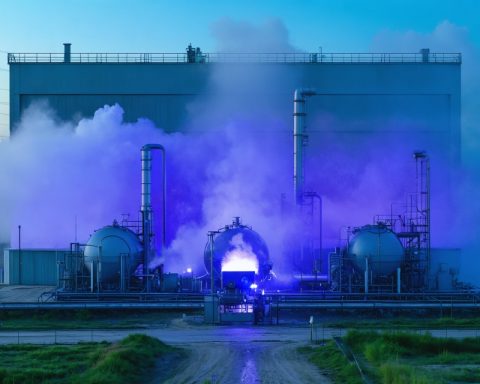In a world increasingly prioritizing sustainable energy solutions, clean hydrogen has emerged as a promising contender for transforming global industries. Yet, beneath the surface of widespread enthusiasm lies a complex narrative that executives and industry leaders must navigate with care.
The Promise of Clean Hydrogen
Clean hydrogen—produced through eco-friendly processes—holds the potential to revolutionize sectors ranging from transportation to heavy industry. Its appeal stems from the possibility of significant reductions in carbon emissions, positioning it as a key player in the fight against climate change.
Diving Beyond the Hype
Expert analysts in the energy sector are peeling back the layers of this emerging market. They provide a comprehensive examination that goes beyond superficial excitement, offering a balanced perspective that assists decision-makers in identifying real opportunities amidst the noise. Their insights underscore the nuanced challenges that accompany the scaling of hydrogen technologies, including infrastructure development and cost competitiveness.
The Strategic Decisions Ahead
For business leaders, armed with rigorous analysis and factual insights, the path forward involves making informed, strategic investments. The assessment of clean hydrogen’s viability is not merely about adopting the latest trend but understanding nuanced market dynamics and potential regulatory shifts.
Embracing a Balanced View
In an era of rapid technological advancement, maintaining a balanced outlook on clean hydrogen is crucial. By focusing on concrete data and critical analysis, industry stakeholders can navigate the evolving landscape, ensuring that aspirations for a sustainable future are grounded in reality rather than speculation.
Is Clean Hydrogen the Miracle Solution or Just Hot Air? Uncover the Other Side of the Story
As society shifts towards sustainable energy solutions, clean hydrogen has captivated the imaginations of industry leaders and environmentalists alike. But what happens when we explore the untold stories beyond the allure of “clean” hydrogen? Here, we delve into the lesser-discussed impacts on people, communities, and countries, hit controversies, and address some pressing questions that surround this potential game-changer.
The Hidden Environmental Costs
While clean hydrogen is touted as an eco-friendly solution, its production isn’t devoid of environmental impact. Current methods often require significant electricity input. The source of this energy is critical—clean hydrogen produced from renewable energy is sustainable, but if derived from fossil fuels, its green credentials come into question. This raises important discussions on whether clean hydrogen truly lowers carbon emissions on a large scale or simply shifts the environmental burden elsewhere.
Impact on Local Communities
The development of hydrogen infrastructure necessitates robust investment in pipelines, storage facilities, and refueling stations. While this can lead to job creation and economic growth in some areas, it can also disrupt local communities, alter landscapes, and potentially lead to environmental hazards if not managed carefully. Ensuring that hydrogen benefits extend to community levels without negative repercussions is an essential aspect of the debate.
Are Policies Keeping Pace with Innovation?
Governments worldwide are still figuring out how to effectively regulate and promote hydrogen markets. Different countries have varying levels of commitment and infrastructure readiness, creating a patchwork of policies that can hinder international cooperation and technology sharing. The need for streamlined regulatory frameworks is pressing if hydrogen is to be globally viable.
Economic Competitiveness: A Double-Edged Sword
The Economics of Scale myth—believing hydrogen will automatically become cheap enough to replace fossil fuels—remains contentious. Currently, the cost of producing, storing, and distributing hydrogen remains high. Investments in technology and infrastructure are crucial to drive costs down, but investors bear the risk of uncertain returns.
Interrogating the Energy Transition: Who Stands to Gain the Most?
The rise of hydrogen raises questions about equity in energy transitions. Will developing nations be able to participate equally, or will the benefits accrue primarily to advanced economies capable of heavy initial investments? This disparity could widen global economic divides unless plans are deliberately inclusive.
Controversial Stakeholder Dynamics
Major oil and gas companies are investing heavily in hydrogen technology, positioning themselves as key players in the shift to clean energy. However, their involvement prompts skepticism about motives, as stakeholders debate whether these corporations genuinely support a sustainable transition or exploit the market to maintain dominance.
The promise of clean hydrogen is complex—full of potential yet fraught with challenges. As the world braces for an energy revolution, it becomes clear that successful integration of hydrogen into our energy landscape requires pragmatic strategies, thoughtful policy making, and an empathetic consideration of its diverse effects on people and planet.
Related read: For further insights into the energy sector, visit International Energy Agency. Discover innovative solutions at U.S. Department of Energy.


















